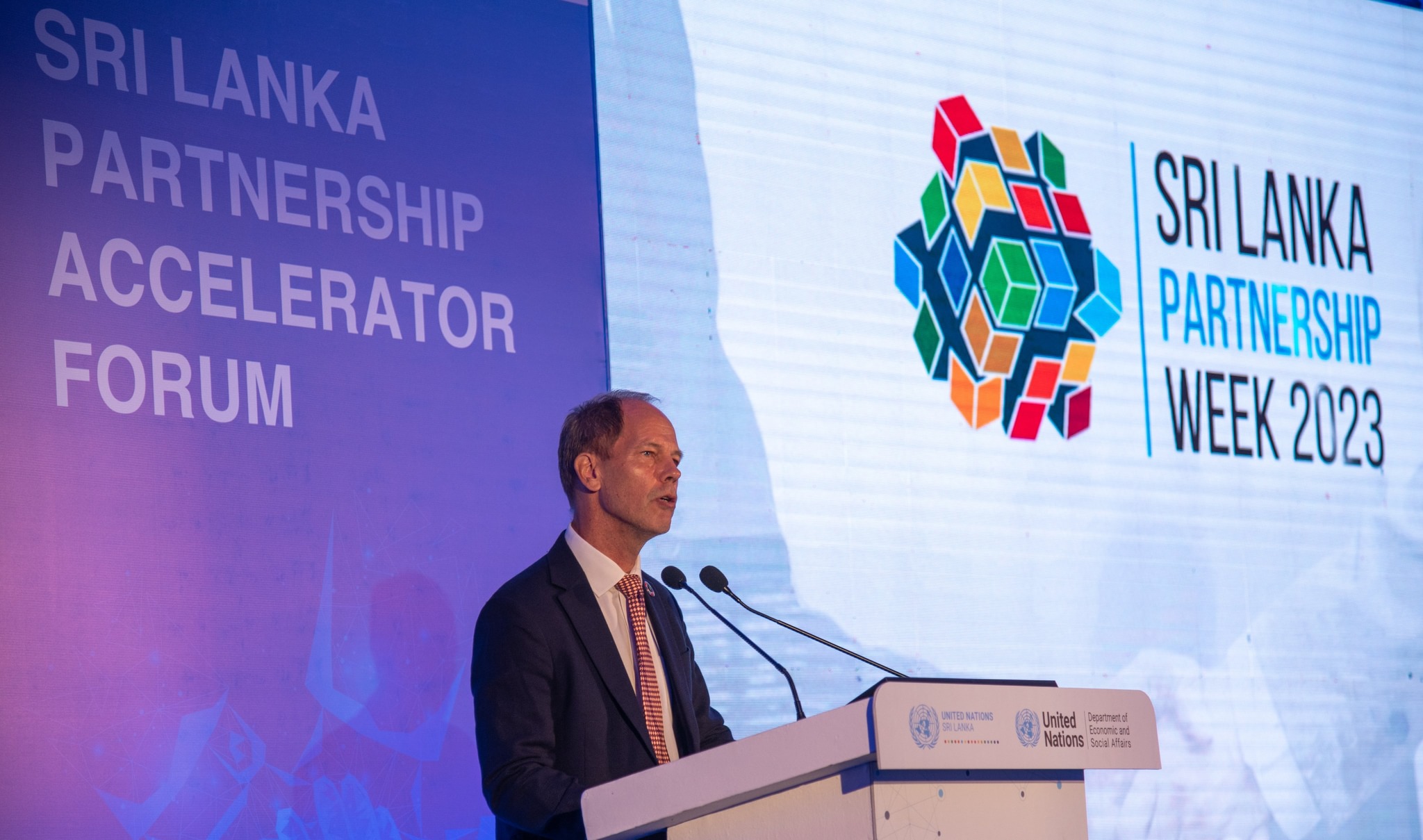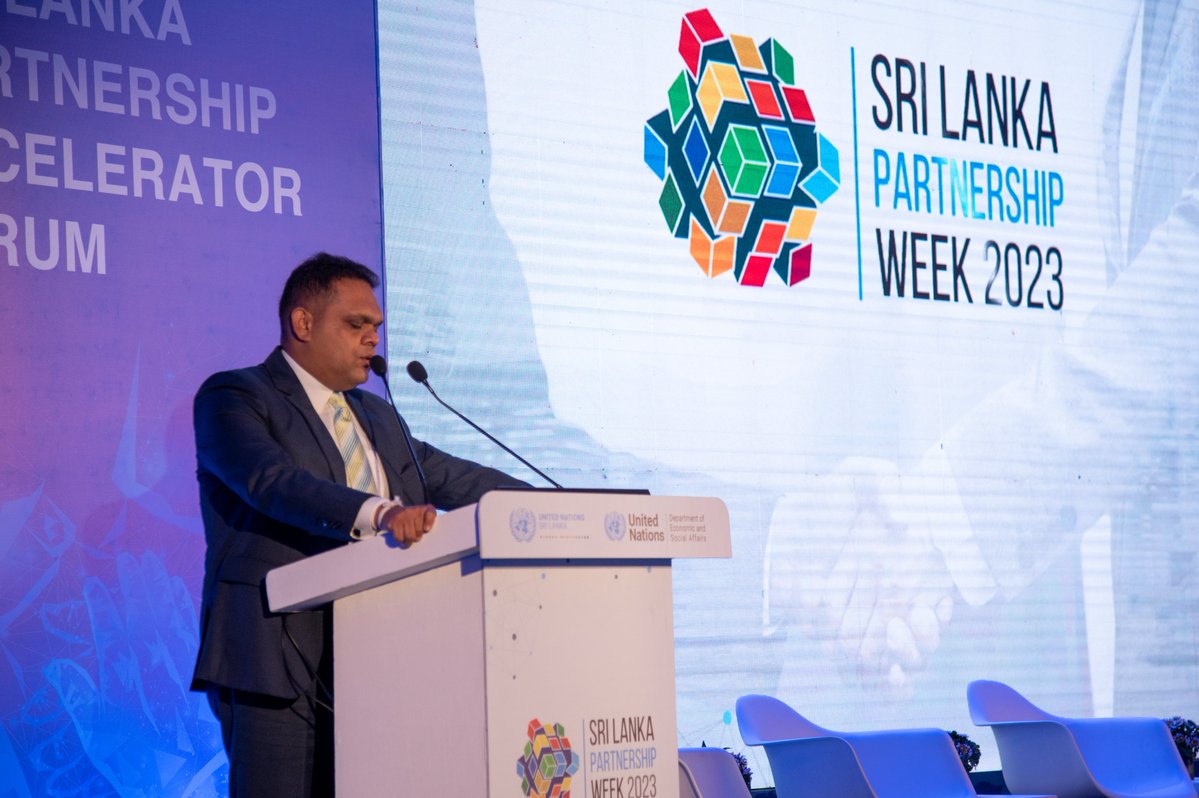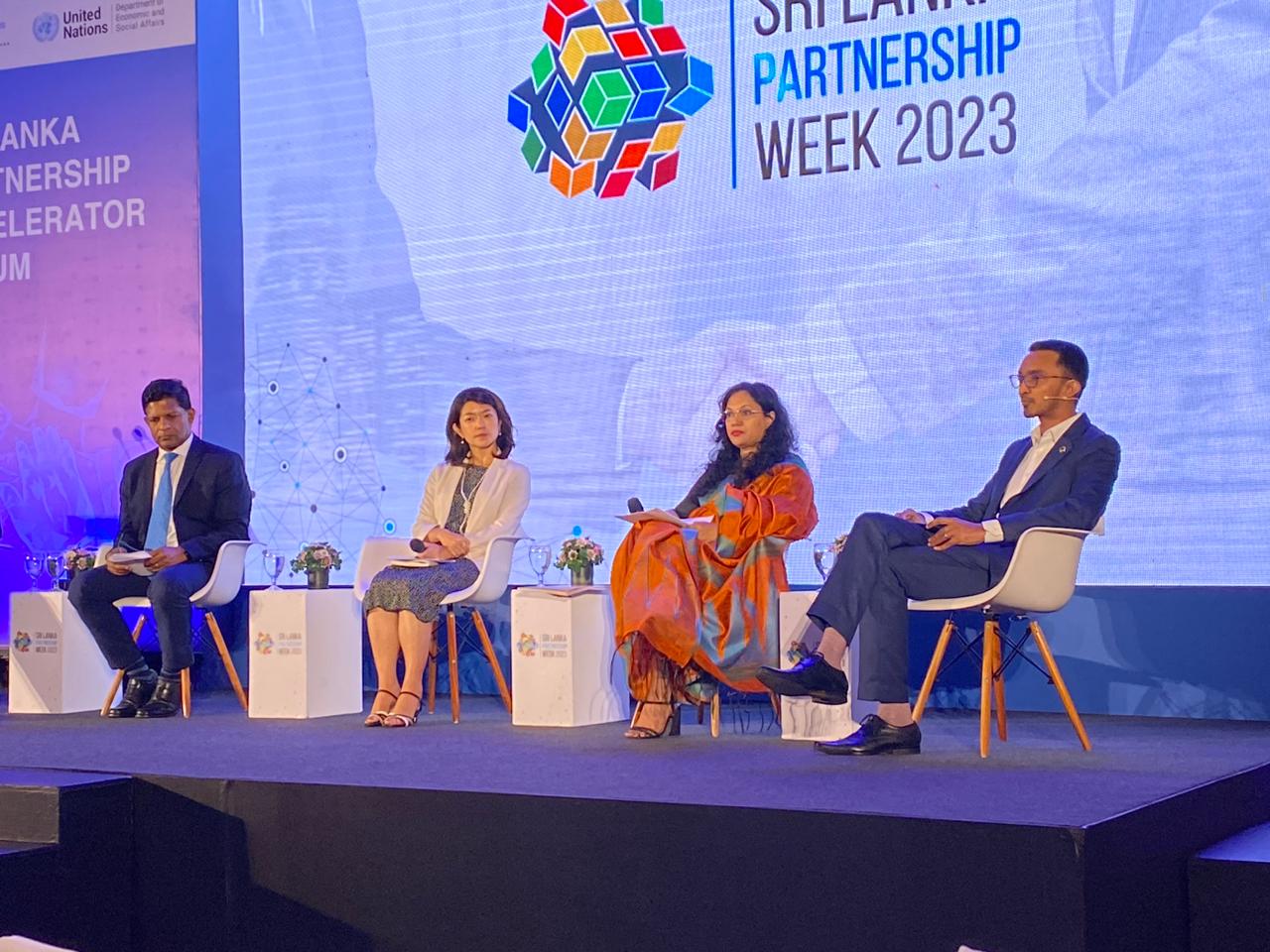Sri Lanka Partnership Week 2023
Sri Lanka Partnership Week 2023
08 මැයි 2023

වෙලාව
2:00pm
ස්ථානය
Colombo
Multi-stakeholder Partnerships are crucial to leverage the inter-linkages between the Sustainable Development Goals (SDGs) to enhance their effectiveness and impact and accelerate progress in achieving the Goals. SDG 17 aims to strengthen and revitalize global partnerships for sustainable development. The Sri Lanka Partnership Landscape Assessment found several areas for potential partnerships to advance the SDGs in Sri Lanka including in better targeting of social safety nets, addressing psychosocial wellbeing and mental health issues, reaching vulnerable groups, reversing migration and in justice reforms among others.
The United Nations Resident Coordinator’s Office in Sri Lanka in collaboration with the United Nations Department of Economic and Social Affairs (UNDESA) today convened the Sri Lanka Partnership Accelerator Forum offering a platform to highlight the critical role of partnerships in advancing sustainable development in Sri Lanka and encourage stakeholders to collaborate towards common goals.

Opening the Forum, UN Resident Coordinator a.i Christian Skoog stated that stronger partnerships among government, civil society, private sector, academia, UN and other stakeholders will enable Sri Lanka to make strides in addressing poverty, promoting health and education and creating sustainable communities.

Addressing the Forum, the State Minister of Finance Shehan Semasinghe stated that, as the Government implements ambitious reforms to achieve economic and financial stability, debt sustainability and structural reforms to unlock Sri Lanka’s growth potential, mutual collaboration among diverse stakeholders would be vital to address the complex development challenges and achieve inclusive and sustainable development in Sri Lanka. The State Minister reiterated the commitment of the Government to work closely with the UN and other partners to achieve the shared vision for a more prosperous and equitable future for all Sri Lankans.

The Forum also featured a Panel Discussion with representatives from government, private sector, civil society and international development agencies. Speaking during the Panel Discussion, the Director General of the Sustainable Development Council, Chamindry Saparamadu stated that although Sri Lanka’s Second Voluntary National Review on SDGs, showcased several examples of effective partnerships between government, private sector and civil society (formed in swift and ad hoc manner), they have not evolved towards the formulation of joint action plans or programmes where there is sharing of resources, responsibilities, benefits and risks and as such, mobilizing partnerships through a cohesive and transparent mechanism that enables long term partnerships is vital to provide a valuable and timely pool of technical, human and financial resources to achieve the SDGs.
The Executive Director of Women In Need (WIN), Savithri Wijesekera, Resident Representative of UNDP Sri Lanka, Azusa Kubota, Executive Director of Global Compact Network - Sri Lanka Rathika De Silva and Country Director of Asia Pacific Alliance for Disaster Management Sri Lanka Firzan Hashim shared their reflections on successful multi-stakeholder partnerships that have contributed to sustainable development locally and globally.
The event was attended by representatives from the government, civil society, private sector, academia, UN and other development partner agencies and diplomatic missions.






